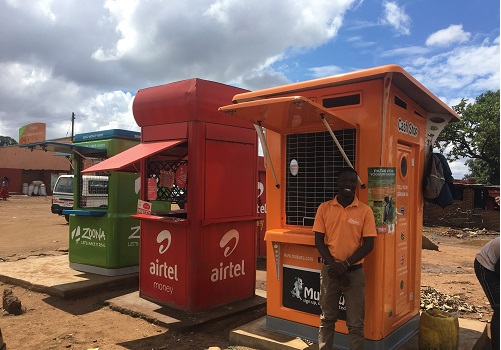COVID-19 has been one of the most impactful global disruptions of the twenty-first century. “We are facing a human crisis unlike any we have experienced,” is the assessment of UN Deputy-Secretary-General Amina J. Mohammed.
Malnutrition, the high prevalence of TB and HIV, and poor sanitation exacerbate the risks of contracting COVID-19 for many Africans. In turn, these same factors increase the likelihood that Africans with COVID-19 will need critical medical attention. As a result, Africa has hurried to adapt anti-virus safety measures to its unique circumstances “We are at war, and we must win,” Kenyan President, Uhuru Kenyatta said in an address in early April—but winning may come at a high economic price.
With response measures disrupting economic productivity, African communities now face food insecurity due to a reduction of income and loss of employment. A report[1] published by the African Union (AU) estimates that 20 million informal and formal jobs in Africa may be lost “if the situation lasts”. It is the most vulnerable who are most affected. Specifically, the lockdown has been impacting Africans working in the informal sector, particularly migrant workers or families who rely on remittance incomes.
A “remittance” is cash sent from the breadwinner in a foreign country to their family back home. This money is typically the only source of income for the family, and is used to buy food, medicine, and pay for school fees. Due to economic and political instability leading to high unemployment rates in their home countries, migrants have historically moved to more affluent economies such as South Africa in search of work and income to support their families back home.
Mukuru, a leading remittance provider in Southern Africa, backed by Emerging Capital Partners, has seen an increase in remittances on their platform since the South Africa lockdown in late March. Migrant workers who previously remitted funds via informal channels, such as taxi routes or traveling with cash themselves, had to convert to formal digital channels quickly.
Twenty to 65% of Africans rely on informal jobs[2], entrepreneurship, or shift-based work to feed their families, often with limited or non-existent savings. With halting of incomes, due to a country-wide lockdown, South Africa’s citizens can apply for grants or food parcels from the public and private sectors. However, undocumented workers are unable to apply for financial support or grants without proof of employment and citizenship. Similarly, those in rural or hard-to-reach areas are less likely to receive these critical food parcels.
Governments and the private sector are racing to find an effective solution to alleviate food insecurity risks in impoverished communities. This has led to unprecedented cooperation between opponent political parties, and the private and public sector; with several non-profit organizations being established across Africa to share resources and learnings.
African FinTechs such as Mukuru, Hello Paisa, and Mama Money are in a unique position to make a lasting and positive change by providing safe and cost-effective forms of payment and money transfers as an alternative to cash transactions. FinTechs can also enable small business transactions through secure payment online channels. Previously, FinTechs faced barriers to trial and acceptance, with customers preferring cash-based transactions. With viable alternatives lacking and governments encouraging citizens to adopt digital payment solutions, COVID-19 is acting as a catalyst for the digitization of payments and remittances.
Companies such as Mukuru are adapting to the challenge, offering donors the option to benefit from their platform, broad pay-in and pay-out network and customer-reach, to assist vulnerable communities across Southern Africa. Donors could action ‘bulk payments’ into the accounts of identified vulnerable groups, giving families a source of temporary income to purchase food and medicine during the pandemic. CrossBoundary, an emerging markets investment advisory firm with expertise in African FinTech, has supported Mukuru through a market study on product innovation to accelerate financial inclusion in the region.
“It was clear from our work on the ground in Southern Africa that Mukuru has a more robust network of partners and booths than its competitors, and that their customers rely on Mukuru booths to collect larger sums of money whereas other pay-out channels often run out of cash on hand.”, explains CrossBoundary Associate Vicky Aadnesgaard on the Mukuru Market Study.
Mukuru was originally founded to allow Zimbabweans living abroad to send fuel vouchers and US dollars during the initial period of hyperinflation the country faced in 2006. It has since evolved into a leading remittance provider in Southern Africa. Through a multi-lingual call center and omnichannel customer access approach, Mukuru assists migrant workers to send money home safely and efficiently. Through partnerships with local banks, retail chains, mobile network operators and mobile money providers, as well as setting up their broad-reaching chain of booths, the average Mukuru recipient takes less than two minutes to collect their remittances.
Through Mukuru’s strong network of pay-in and pay-out partnerships and operations, customers were able to send money home during the ‘hard’ lockdown in South Africa in which only essential services were permitted to operate. As a result, Mukuru experienced a material increase in its customer base during the lockdown as closed borders necessitated digital remittances. “This brings us a step closer towards regional financial inclusion.
We expect that once customers are educated on digital financial services, particularly by family and friends who use remittance services, their access to and adoption of other financial products will increase. Moreover, increases in customer base, product utilization, volumes and values of transactions, can significantly drive down the cost of financial products and reduce the stigma around digital banking across the region.”, explains CrossBoundary Associate Claudia Masemola.
FinTechs like Mukuru have the potential to assist donors and aid organizations who have the funds but not the data nor distribution networks to most efficiently and effectively provide targeted relief to the most affected households in Southern Africa. Besides, recipients could use the Fintech’s established networks to avoid congregating at limited access points. This is a significant differentiator because it allows users to abide by the World Health Organization’s social distancing guidelines, decreasing the risk of COVID-19 transmission, and reducing structural barriers to access.
“As the economic impact of COVID is unfolding in Southern Africa, protecting food security and livelihoods is top of mind for governments and donors alike. Tapping into remittance databases like Mukuru’s allows for very targeted interventions – identifying the most vulnerable households and providing financial relief in a matter of days in a traceable manner,” shares Frederik Benzel, Head of Southern Africa Advisory for CrossBoundary. FinTechs have vast databases of transactional information for the most vulnerable individuals in communities, both on the sending and receiving side of diaspora remittances.
Donors can tap into this information to target specific groups of people; by country, gender, age, income, or by more nuanced demographics such as woman-headed households. For donors, such partnerships could also reduce the friction in the reporting and auditing phase of aid distribution due to enhanced traceability and the robustness of their infrastructure and data recording processes.
There has never been a more pivotal time to encourage collaboration across competitors, the public and private sectors, and international and local corporates and organizations. Collaborative Fintech is needed to respond to this crisis and improve financial inclusion and SME business competitiveness. If done in the right way, FinTech could also become the launching pad that accelerates Africa into the fourth industrial revolution and results in a more resilient continent.
As the President of South Africa, Cyril Ramaphosa, recently shared, “COVID-19 is a real threat to the livelihoods of our people. We all agree that our country is in an extreme position that requires extraordinary measures, but [it] also requires that we should find a way of working together, in solidarity as well as partnership. All parties represented in parliament have found it good to stand together across party political divides to fight this disease together.”
Note: CrossBoundary assisted Mukuru under USAID’s INVEST program through a market study on product innovation to accelerate financial inclusion in the region. This support was funded by USAID’s Southern and East Africa Regional Missions in support of the US Government’s Prosper Africa initiative.
[1] https://www.tralac.org/documents/resources/covid-19/3218-impact-of-the-coronavirus-covid-19-on-the-african-economy-african-union-report-april-2020/file.html
[2] Depending on the country, as there is significant heterogeneity. South Africa, Mauritius and Namibia range from 20-25%, with Benin, Tanzania and Nigeria ranging from 50-65% of GDP. Source: IMF, 2017
Vicky Aadnesgaard, is an Associate at CrossBoundary Advisory, based in the Johannesburg Office. While at CrossBoundary, Vicky has focused her efforts on agribusiness and fintech.
Claudia Masemola is an Associate at CrossBoundary Advisory – Johannesburg Office, where she managers Private Equity and Donor client engagement. In this capacity, she also facilitates transactions in the financial inclusion space (including microfinance, trade finance, and mobile money), agribusiness, renewable energy, and FMCG.
Frederik Benzel, is a Principal at CrossBoundary Advisory, and leads the firm’s Southern Africa investment advisory team from Johannesburg.




